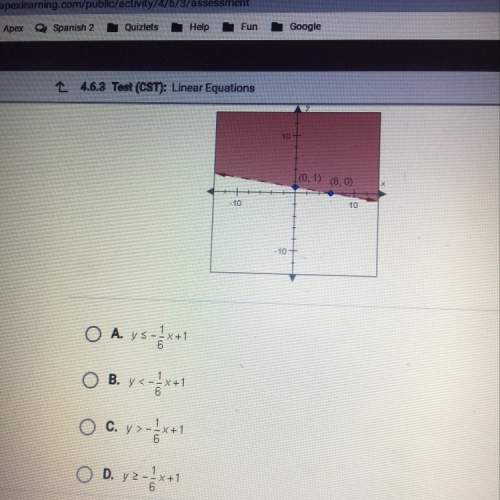
Mathematics, 18.07.2019 03:40, ImmortalEnigmaYT
Newton’s law of cooling states that for a cooling substance with initial temperature t0 , the temperature t(t) after t minutes can be modeled by the equation t(t)=ts+(t0−ts)e−kt , where ts is the surrounding temperature and k is the substance’s cooling rate. a liquid substance is heated to 80°c . upon being removed from the heat, it cools to 60°c in 25 min. what is the substance’s cooling rate when the surrounding air temperature is 50°c ? round the answer to four decimal places. 0.0439 0.0532 0.0613 0.0872

Answers: 1
Other questions on the subject: Mathematics

Mathematics, 21.06.2019 14:30, theworld58
Aswimming pool has an input pump for filling the pool and an output pump for emptying the pool. the input pump can fill the pool in 3 hours, and the output pump can drain the pool in 5 hours. as you go to bed, the pool is full, but a neighbor’s kid turns on the output pump. at midnight, you awake to find the pool half empty. immediately, you turn on the input pump, but you are sleepy and forget to turn off the output pump. at what time will the pool become full?
Answers: 1



Mathematics, 21.06.2019 18:30, 25jzaldivar
Players on the school soccer team are selling candles to raise money for an upcoming trip. each player has 24 candles to sell. if a player sells 4 candles a profit of$30 is made. if he sells 12 candles a profit of $70 is made
Answers: 2
Do you know the correct answer?
Newton’s law of cooling states that for a cooling substance with initial temperature t0 , the temper...
Questions in other subjects:


Mathematics, 31.05.2020 03:00






Mathematics, 31.05.2020 03:00

Mathematics, 31.05.2020 03:00








